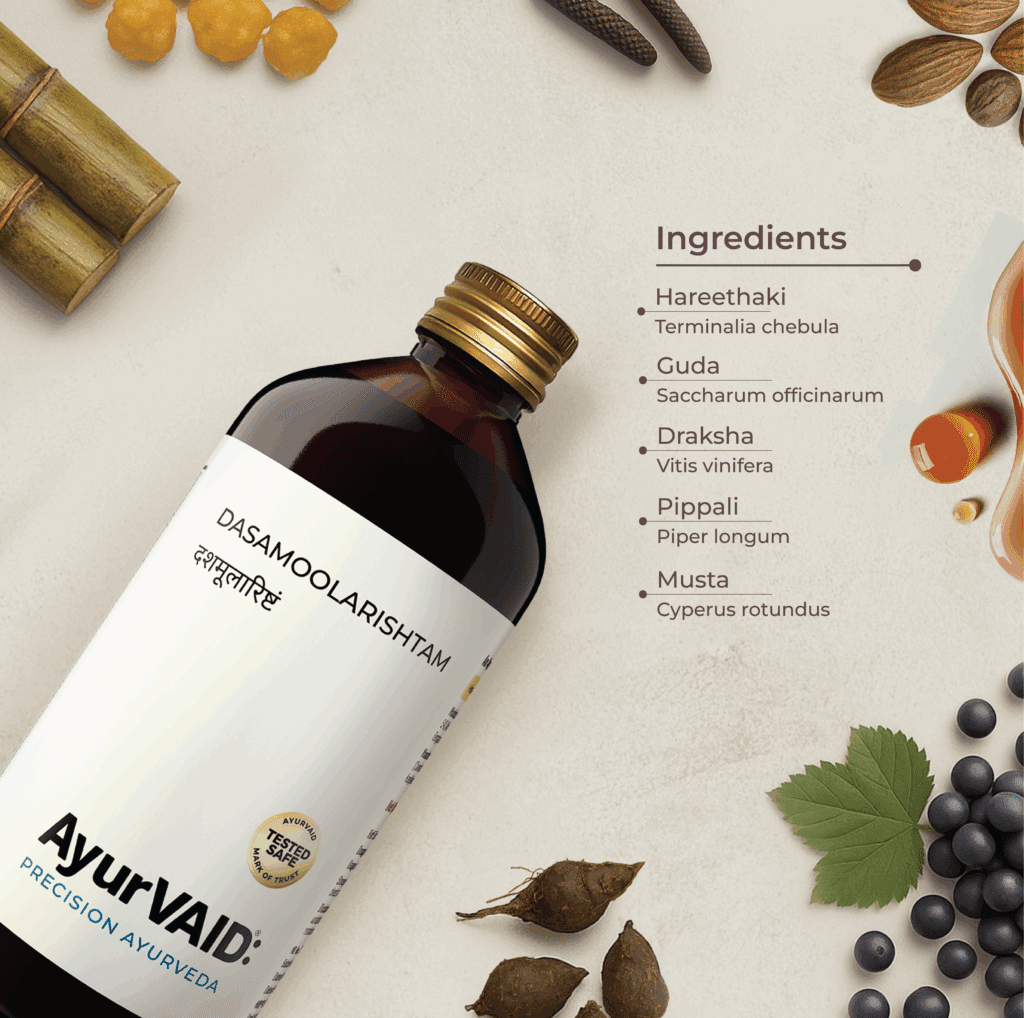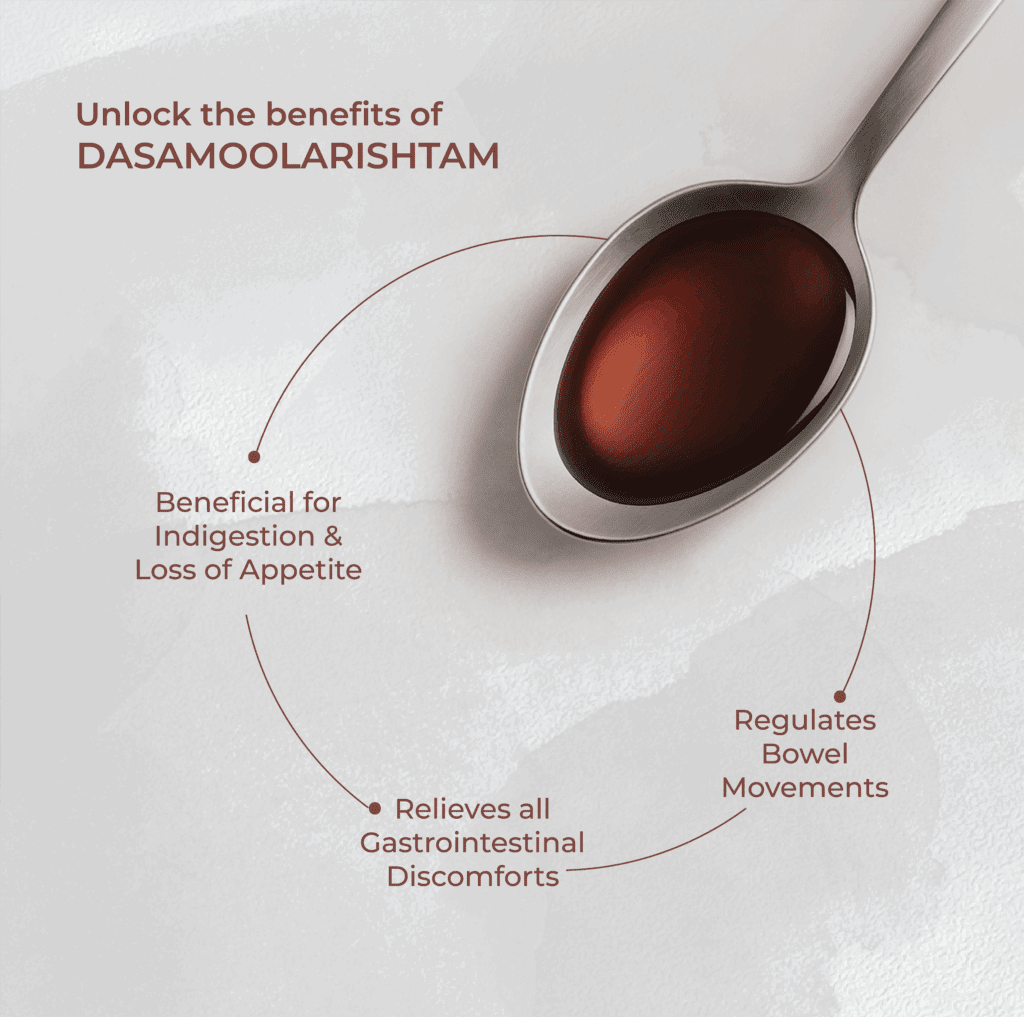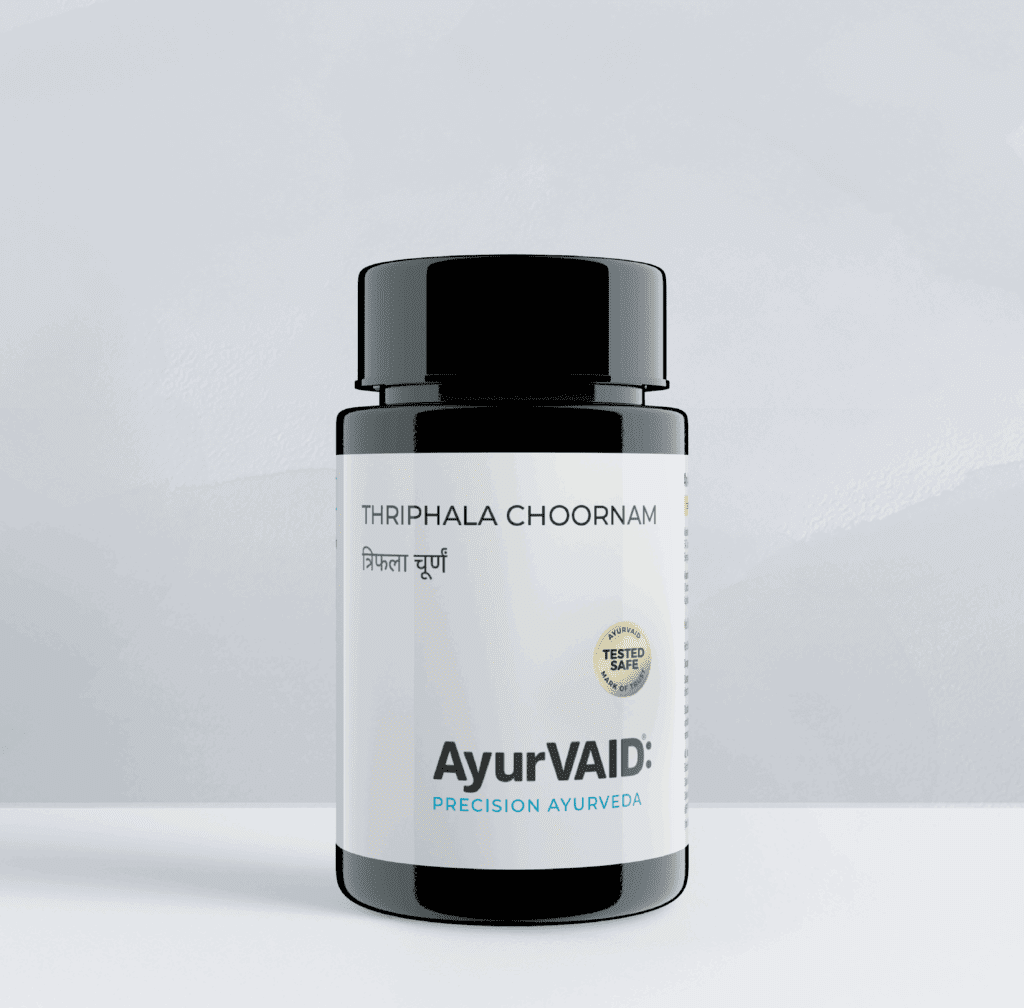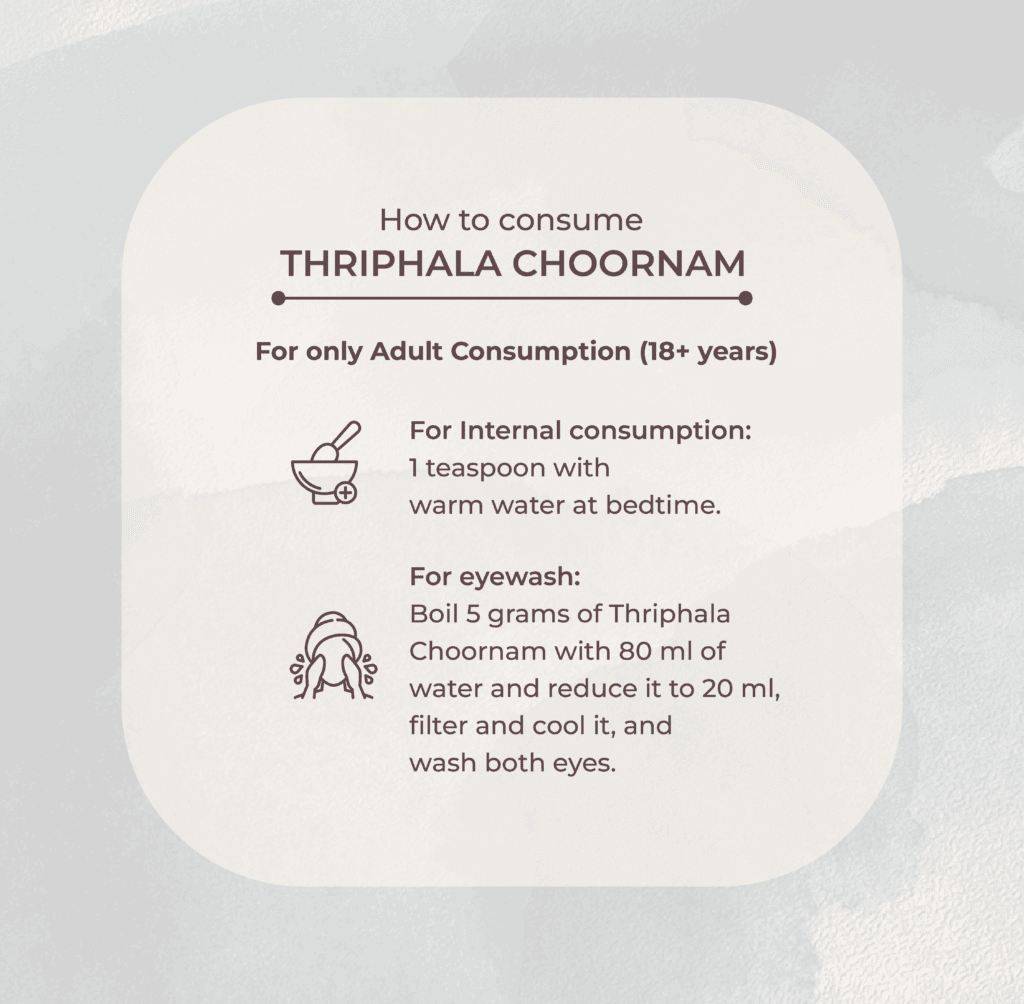Introduction
Diwali has finally arrived, the festival of lights, laughter, and togetherness. Homes are decked out with diyas, the streets are decorated with lanterns, and the aroma of festive treats fills the air: laddoos, barfis, kaju katli, and oh, so many sweets. A table of crispy snacks, samosas, pakoras, namkeens; who wouldn’t want to grab a bite?
It is the one time of year to really indulge, and every bite feels like a celebration. Let’s be honest, though. After one or two helpings, the joy can turn a little heavy. That extra piece of mithai feels a little too much. You feel full, tired, and start to wonder if it was all worth it.
But the good news is that you don’t have to choose between enjoying celebrations with your loved ones and feeling uncomfortable or weighed down. Ayurveda offers gentle approaches to keep your digestive system working optimally, allowing you to relish every dish, every sweet, and every moment leading up to the festivities without feeling the aftereffects. Simple home remedies, lifestyle changes, and Ayurvedic remedies for digestion will ensure that during the chaos of the festive season, your system will stay on track.
Understanding Digestion in Ayurveda
In Ayurveda, digestion is ruled by Agni, the digestive fire. When Agni is balanced, your food is digested properly, nutrients are absorbed, and waste is eliminated effectively. You feel light, energised, and ready for the day. However, during Diwali, heavy sweets, fried snacks, irregular mealtimes, and the impulse to “just have one more” can damage and impair the strength of your digestive fire. Agni dysfunction leads to three types of digestive disorders: Mandagni (weakened digestion), Tikshnagni (hyperactive digestion), and Vishamagni (irregular digestion). Foods that are high in calories, spicy, oily, and heavy (as is very common during festivals) are likely to disturb the delicate balance of the Vata, Pitta, and Kapha doshas, leading to symptoms like:
- Bloating and heaviness
Indigestion and gastric discomfort - Acid reflux and hyperacidity
- Constipation and irregular bowel habits
- Fatigue and lack of appetite
The primary aims of Ayurveda treatment of impaired digestion are to restore Agni, eliminate Ama, and invigorate and cleanse underlying dietary and lifestyle imbalances. Treatment based on these aims will include Panchakarma treatments and Pathya-Apathya (food and lifestyle guidelines), Vatanulomana (regulation of Vata movement), Deepana Pachana (appetite-enhancing digestive herbs and preparations), and Langhana (fasting). Ayurveda involves supporting your body’s natural detox process and focusing on nurturing your digestive fire and gently rebalancing your system. In other words, you can enjoy the feasting without experiencing disruption to digestion.
Simple Home Remedies to Keep Gut Happy
You don’t need complicated routines or expensive concoctions to keep your digestion at its peak. Sometimes the simplest steps make the biggest difference.
- Start your morning with a warm cup of water with a pinch of cumin (Jeera) or carom seeds (Ajwain). It gently wakes up your digestive system and flushes out toxins.
- Avoid late-night heavy meals as they could lead to acidity and heartburn.
- After a heavy meal, sip on warm ginger water to calm your stomach and rekindle your digestive fire.
- Slow down while eating, chew well, and if you can, take a short walk after your meal; your stomach (and heart) will thank you.
- Don’t compromise on sleep. Lack of enough sleep can increase fatigue and cortisol levels, leading to inflammation and bloating.
- Try to stay physically active and engage in gentle exercise to keep up your appetite.
Think of these as small nudges to your body. They’re not rules but your digestive system’s little helpers, working quietly in the background while you enjoy the celebrations.
AyurVAID’s Classical Formulations for Festive Digestion
Sometimes, in addition to home remedies, a little extra support is needed. AyurVAID’s range of Ayurveda medicines is India’s first and only TESTED SAFE and prepared according to classical methods, while meeting strict safety standards for heavy metals, aflatoxins, and microbes. Each AyurVAID product is tested and certified safe by NABL-accredited labs, with batch-specific test reports accessible via the QR code on the pack, ensuring complete transparency and trust. Essentially, you get the best of tradition and modern safety.

- AyurVAID Dasamoolarishtam is a traditional Ayurveda formulation intended to maintain a healthy digestive process and alleviate common digestive discomforts, including bloating, heaviness in the abdomen, burping, and lack of appetite. The potent formulation of Dasamoola (ten root herbs), Triphala, Jeeraka, Draksha, and other digestive herbs cleanses the gut, improves metabolism, increases nutrient absorption, and restores weak digestive fire (Mandagni). Ideal for those experiencing post-meal discomfort, sluggish digestion, or recurring indigestion, it also promotes regular bowel movements without dependency.


- AyurVAID Avipathi Choornam is a classical Ayurveda formulation that offers gentle relief from common digestive troubles such as acidity, acid reflux, and gastritis. Acting as a mild, non-habit-forming herbal laxative, it helps cleanse the gut, cools excess Pitta, and soothes gastric irritation, making digestion smoother and lighter.

- AyurVAID Ashta Choornam promotes digestive health and enhances appetite. Enriched with a combination of digestive herbs and spices, like Asafoetida, Ginger, Long Pepper, and Rock Salt, it reduces bloating, gas, and abdominal discomfort. Ashta Choornam is suitable for post-meal discomfort or indigestion, and improves digestive and overall gut health.
- AyurVAID Hinguvachadi Choornam is intended to promote healthy digestion and relieve common gastric complaints such as gas, bloating, flatulence, and cramping conditions after heavy or irregular meals. This blend of Digestive herbs, including Hing, Ajwain, Jeera, and Dry Ginger (Shunti), works to pacify aggravated Vata and Kapha doshas, enhance the digestive fire (Agni), and aid in the prevention of digestive or metabolic toxins (Ama). By enhancing digestive disturbances, Hinguvachadi Choornam affects a healthy metabolism with nutrient absorption and appetite.
- AyurVAID Thriphala Choornam is a classical, time-tested Ayurveda formulation made from three fruits: Amalaki, Bibhitaki, and Haritaki. Triphala is known for its digestive-enhancing effect and for promoting normal bowel movements, digestion, and internal cleansing without creating dependency. Traditionally used as a daily gut-support formula, it encourages long-term digestive wellness, improves nutrient absorption, and helps reduce the accumulation of toxins (Ama). With its mild action, Triphala Choornam can be incorporated into everyday routines safely, making it ideal for those seeking consistent digestive balance.


Ayurveda Treatment For Digestive Issues
Management of digestive issues at Apollo AyurVAID is comprehensive and personalised, focusing on restoring Agni (digestive fire), eliminating Ama (toxins), and correcting lifestyle and dietary imbalances caused by festival indulgences. Key treatment components include:
- Dietary Modifications: Adoption of easily digestible, light foods with digestive spices and avoiding excess sweets, oily, and incompatible foods.
- Panchakarma Therapies: Detox therapies such as Virechana (purgation), Vamana (emesis), are meant to cleanse built-up Ama and reset the digestion.
- Herbal Medicines: Ayurveda formulations, such as Triphala, are used to assist digestion, preventing bloating, and enhancing gastrointestinal functioning.
- Lifestyle and Stress Management: Yoga, meditation, and mindful habits are included to improve gut health by alleviating mental stress and improving digestive ability.
Apollo AyurVAID’s Peak Health Programme is a customised, protocol-driven program aimed at improving digestive well-being for busy professionals who experience digestive issues due to their lifestyle and eating habits. The programme starts with a thorough consultation to evaluate digestive strength (Agni), identify imbalances, and understand each person’s health goals. Next, personalised treatment plans include traditional Ayurveda therapies, internal medicines, and specific Panchakarma detox procedures designed to restore gut health, balance doshas, and eliminate toxins (Ama). The programme supports sustainable digestive wellness through integrated dietary and lifestyle recommendations, digestive herbal formulation, and stress-reduction practices such as yoga and meditation. Flexible in duration, this programme offers samplers of 2 days for immediate relief to intensive Health resets up to 7 days for long-term digestive balance.
Conclusion
Indulgence doesn’t have to come at the cost of comfort. Ayurveda allows you to enjoy your food, digest it easily, and appreciate the little things in life without feeling sluggish afterwards. AyurVAID’s medicines, along with herbs like Triphala, Jeera, Ajwain, and Hing, let you enjoy your mithai and treats guilt-free. This Diwali, fill your home with laughter, love, and light. And don’t forget to take care of your inner balance, too. Keep your digestion strong, your energy high, and your celebrations full of happiness. When your stomach is happy, your heart and every delicious bite feel even better!






